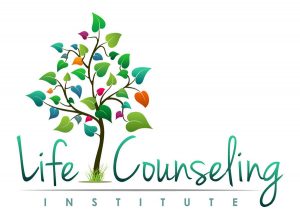by Marilee Feldman, LCPC, CADC
Parents love to joke about their worst moments in parenting. For example, we laugh about that time that we forgot to strap in the car seat and it flipped over in the back seat but the baby was fine, or the time that we drove off from the gym, forgetting our two-year-old was in the childcare center. Thank goodness these rather horrifying parental moments didn’t amount to much, but what about the ones that did? What about the mistakes we made as parents that actually caused our child harm? Those mistakes, well, we don’t laugh about, talk about, or admit to so readily. And yet we’ve all made them.
In theory most of us know that it’s important to admit our mistakes to our kids. This is easier when they’re young, as right in the moment or shortly thereafter, it’s usually not awful to say, “I’m really sorry I lost my temper, overreacted, (insert other parent fail here).” When we do this, we model for our child that because we’re human, we make mistakes, and that that’s okay as long as we own those mistakes and try to change our behavior. When we apologize, we gain credibility in the eyes of our child and we increase their trust in us. And when we don’t, the relationship—and the child’s behavior—tend to deteriorate from there.
But what about the bigger mistakes, the ones that are a pattern of behavior rather than a momentary lapse in judgement? The mistakes we’re most ashamed of? These are the mistakes no one jokes about, or even talks about, and yet they are the ones we most need to pay attention to. I’m talking about the way you may have flown into a rage repeatedly, shamed and blamed your child, pressured your kid, failed to pay attention, didn’t appreciate how bad things were, or failed to attend to your own mental health issues. These are the mistakes, if not owned and admitted to, that can truly harm your child. And while admitting to our teens or adult children our flaws and mistakes is incredibly difficult, it is also the single most healing thing a parent can do.
Therapists’ offices are full of teens and adults who carry wounds from their childhoods that they have internalized, causing a host of difficulties, including depression, anxiety, addiction, low self esteem, and eating disorders, all of which may stem from the bad feelings they have about themselves that they got when, for example, dad yelled too much, mom was too preoccupied, or their feelings were invalidated or they weren’t taken seriously. They figure it was their fault, believe that they are the reason for their difficulties, and feel ashamed. Hearing from a parent that the parent played a role can be life changing. To hear, “I didn’t know how bad it was…I’m sorry I pushed you too hard…I blamed you and made you think you were the problem…You must have been so embarrassed…I didn’t get my act together” can set the teen or adult in a new direction.
And it can change the parent as well. We’re not talking about groveling with shame and regret before our children, and if that’s where you’re at, you might want to get some therapy to work through these issues before proceeding. The parent must possess both strength and vulnerability and have done their own shame healing work, which may require professional help.
Here is the message we want to learn for ourselves and convey to our children, no matter what their age: Just like everyone else, because we’re human, we will make mistakes, even bad ones. And while we may have shame and regret, we can work through that, heal, and own and change our behavior. We can help the child know that we played a role in their difficulty, relieving them of much of their own shame. In making amends to your child, both you and your child can begin the healing process, deepen your relationship, and be free of the guilt and shame of the past.



